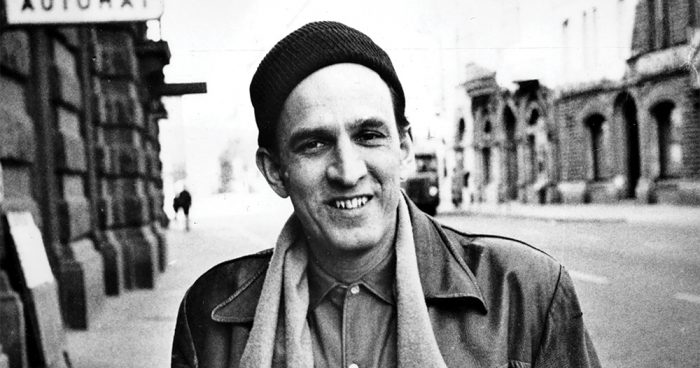
Dir.: Margarethe von Trotta; Documentary with Liv Ullmann, Olivier Assayas, Jean-Pierre Carriere, Mia Hansen-LØve, Julia Dufvenius, Daniel Bergman, Ruben Östlund, Stig Björkman, Katinka Farago; France/Germany 2018, 99 min.
Of the two Bergman documentaries at Cannes last year – now on release – this is the most appealing. German director Margarethe von Trotta (Die Verlorene Ehre der Katherina Blum) tries desperately not to make Bergman a hero in her glowing love letter to the Swedish director (1918-2007): she succeeds on a personal level, but falls short when it coms to his artistic output. Perhaps understandably, given that The Seventh Seal was the first film that inspired von Trotta to become a director herself during her time in Paris. But Bergman returned the favour: she was the only woman director to feature on his list of eleven of his favourite films (dominated by legends like Kurosawa, Dreyer and Chaplin) for her Venice winning opus Marianne and Juliane (1981).
Written by co-director Felix Moeller, Searching opens with scenes from The Seventh Seal, set on the rugged Swedish coast, which it then revisits in the present day, to find that little has changed since the 1950s. Bergman was a life-long prisoner of a loveless childhood enforced by his father, a vicar. Jean-Pierre Carriere posits “In all his films there is a conflict between his strict upbringing and the present”. Bergman ran his life on a tight schedule, even his funeral was planned down to the last detail, only friends and family being invited. But he was also a suggestible and compulsive man, very much in believing the ghosts in his films, such as Hour of the Wolf. And filmmaker Mia Hansen-LØve senses this is his private life too :“you could feel the ghosts in his house”.
Bergman’s hero was his Swedish compatriot Victor Sjöström whose 1921 feature The Phantom Carriage became a regular favourite, Bergmann watching it every year of his adult life. He also cast Sjöström in his first great success, Wild Strawberries (1957).
Promiscuous, he went on to father nine children with various different women, including his favourite actor Liv Ullmann. His son Daniel (*1962) from the marriage with Käbi Lareti, is not particularly fond of his father, calling him by his Christian name. Daniel does not miss his parents now they are dead, but it frightens him to think that his nine-year-old daughter Judith might feel the same way about him. On his 60th birthday, Bergman’s children eventually met up, many for the first time. And Daniel is not the only one to feel that his father was just “a big child”, unable to related to his kids. Although he clearly enjoyed sex, Bergman intensely disliked watching other people’s love scenes during Hollywood movies, asking the projectionist to fast forward through those in Pearl Harbour.
In 1976 Bergman spent some time in prison for tax evasion, then fled Sweden for Hollywood (although he never made a film there) and later Germany where his anti-Nazi feature the Serpent’s Egg (1977) was rather a flop. Bergman had a passion for Hitler before the outbreak of WWII, calling him a saviour. But most of his films are dominated by strong men, who are not necessarily evil. After a ten year exile, Bergman returned to Sweden.
As is often the case, Bergman was more popular abroad than at home, where the public and critics preferred more down to earth directors such as Bo Widerberg. Von Trotta cuts short the discussion with Swedish director Stig Björkman who claims that Bergman has fallen from popularity with today’s filmmakers.
And while Bergman was a narcissist, he was also a control freak with his favourite seat in a café opposite the theatre, so he could watch actors leaving, and work out “who is sleeping with whom”. Even his script adviser for 30 years, Katinka Faragó, reports that Bergman used to stay in bed, holding hands with her for twenty minutes, before he found the nerve to start directing. Von Trotta and her then husband, director Volker Schlöndorff, also claimed that Bergman liked to hold hands at the table, when they met.
Ingmar Bergman was certainly a man of many contradictions, but he should be allowed to have the last word: “I have always felt lonely in the world, and that is why I escaped into filmmaking, but the feeling of community is an illusion”. AS
ON RELEASE FROM 10 MAY 2019 AT SELECTED ARTHOUSE CINEMAS
https://youtu.be/ovXoJ51KbqA